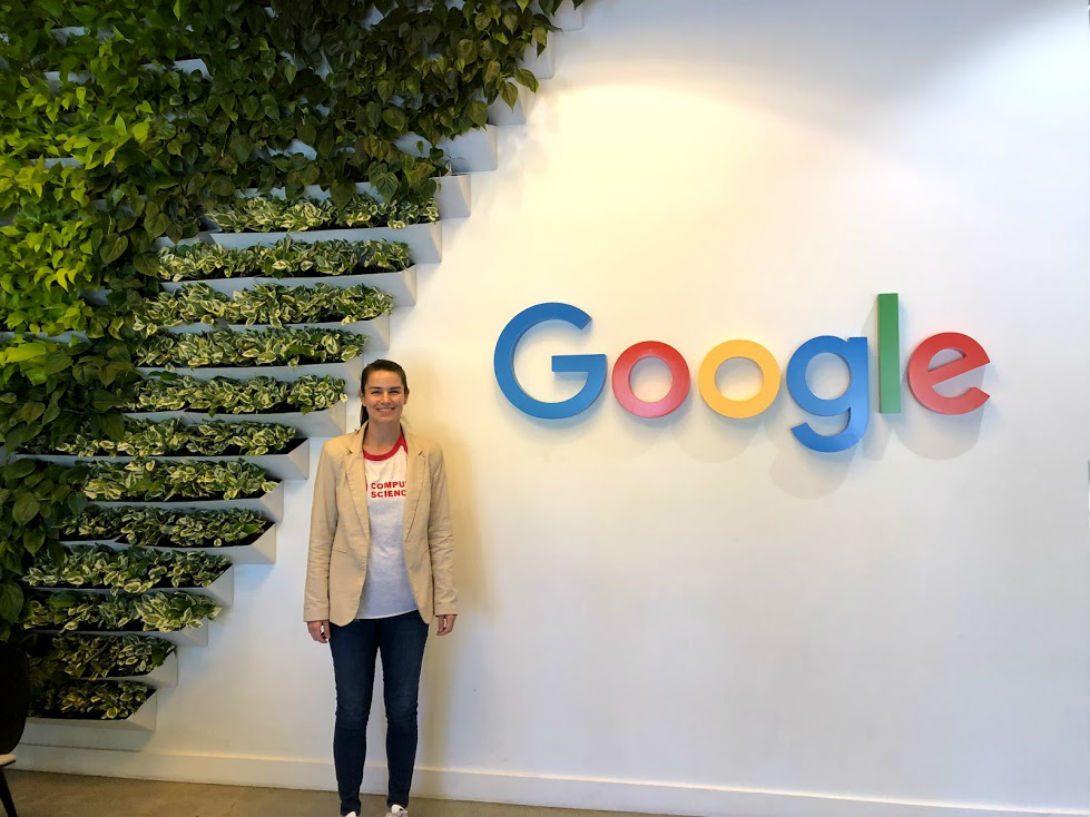UIC Receives exploreCSR grant from Google
UIC Receives exploreCSR grant from Google

UIC is one of 24 institutions to receive an exploreCSR grant from Google. The grants were introduced in 2018 and are designed to help more undergraduate women get involved in research in computing.
“Making computer science (CS) education accessible and available to everyone is an important initiative, and we’re excited to provide this grant to University of Illinois Chicago to help encourage more women to pursue careers in computer science research,” said Sepi Hejazi Moghadam, a senior program manager at Google.
The exploreCSR grant from Google will fund fall and spring two-day workshops for female undergraduates who are studying or interested in computer science.
Clinical Assistant Professor Shanon Reckinger developed the idea for the workshop and applied for the exploreCSR grant.
“We want to expose students to what a career as a CS researcher looks like. A lot of undergraduates don’t really see that side of the discipline,” said Reckinger. “Most plan to go directly to work for industry after earning their bachelor degree. We want to show what careers are available with a master’s or PhD, how graduate school works, and that many students in a STEM discipline receive funding to pursue a graduate degree.”
In addition to working as a researcher at a university, many companies have a research and development team, which is primarily filled with advanced-degree holders. Positions that require expertise in some fields, like AI and machine learning, also typically require more than a bachelor’s degree. And there are many job opportunities at national laboratories, which are often interdisciplinary and require research skills. The Midwest boasts three labs: Argonne National Laboratory, Fermi National Accelerator Lab, and Aimes Laboratory in Iowa. All three were present to recruit at the 2019 Grace Hopper Celebration in October.
The workshops hosted by Reckinger will include a collaborative problem-solving component and an introduction to research careers. To help build confidence among students, Reckinger plans to incorporate collaborative activities focused on the problem-solving process.
“I really want undergraduate students to have confidence in their problem-solving skills. I sometimes see students who are struggling to solve problems and apply their knowledge,” Reckinger said.
One of the exercises will be “problem-solving speed dating,” which Reckinger said will pair students who have taken a data structures course with other students who have not. The more experienced students will receive a problem and know how to solve it, having worked it out on their own before the group exercise. They will then “speed-date” inexperienced students, coaching them and providing support, rotating through different partners. The inexperienced students will then vote on who provided them with the best coaching.
“It’s different than a normal hackathon, where the goal is just to get a problem solved,” Reckinger said. “Both groups will get the time and space to unwrap the problem-solving process and unravel any part of it that needs work.”
The first set of workshops will take place on October 22 and November 5. They will include research faculty, alumni, graduate students, and members of Women in Computer Science (WiCS) from UIC. The second set is scheduled for this spring. For more information, visit Reckinger’s workshop information page.
The CS department will also hold a machine learning workshop in the spring. Details will be forthcoming.